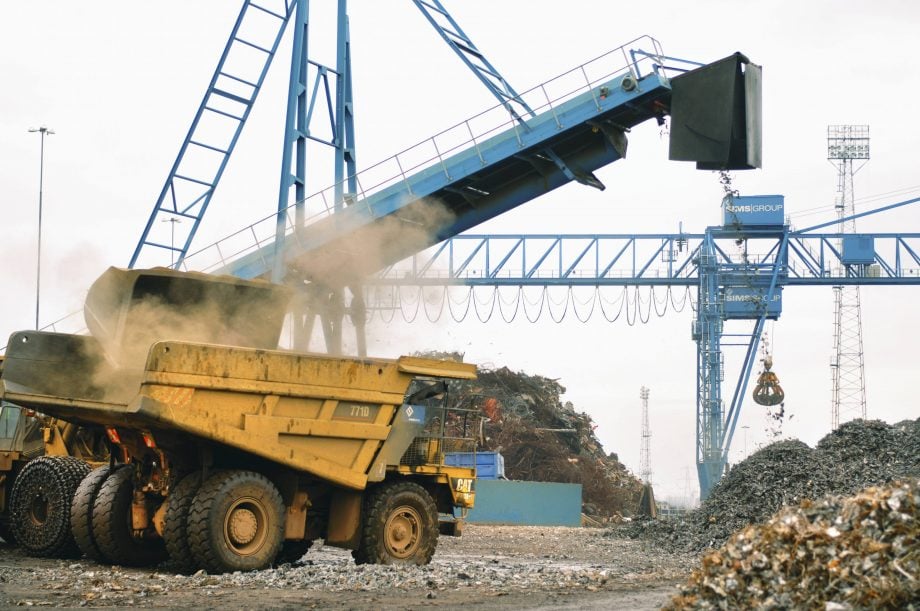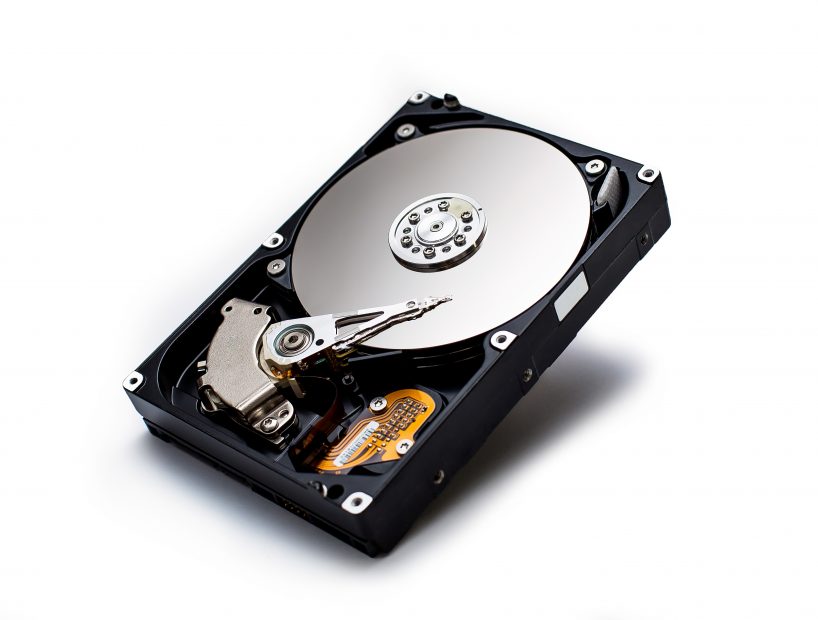Table of Contents
The year is 2013. James Howells from Newport, Wales, is reading the news when it suddenly clicks. He rushes to a drawer in his apartment, pulls on the handle and finds: nothing. Instead of the key to 8,000 BTC, he is holding the empty hard drive that he actually wanted to dispose of. And the digital gold? He accidentally threw it away – instead of the hard drive, which he now finds. His fortune is now buried deep under a pile of rubbish.
“That thing is pretty loud”
Howells has been involved with Bitcoin since 2009. Satoshi published the white paper just a year earlier. This makes the Welshman one of the first people to come into contact with digital gold.
“When I first got involved with Bitcoin, it was just an experiment,” Howells recalls speaking to BTC-ECHO, describing how easy it was to mine BTC back then. Most of the time he just leaves his laptop switched on overnight and mines new coins in his sleep, so to speak. “Most nights I got 200 coins, 300 coins, 500 coins for a day,” said the IT engineer. He continues laughing: “One day I got 1,200 coins. And it was because I overslept.”
So the Welshman keeps digging for a few weeks. Until his partner hints that the fan on Howell’s gaming laptop – he describes it as a high-tech device, one of the first Alienware models – is a bit noisy due to mining. “She didn’t tell me to stop, though,” he says. The background noise wasn’t a problem for him anyway: “Because I’m a computer engineer, I could sleep on the floor in a data center, that doesn’t bother me. But it was annoying for them,” explains the 37-year-old.
“Bitcoin was nothing important at the time.” And with that, Howells puts the metaphorical pickaxe and dirty work clothes way down in his consciousness: he’s quit mining bitcoin.
“If anything, that’s my biggest regret in this whole situation,” Howells said. “Not that I threw away the hard drive.” He continues thoughtfully: “My biggest regret is that I stopped mining because we are talking about 8,000 coins today. But if I had kept digging, we could have been talking about 800,000 coins.”
The moment of truth
In 2010, Howells bought a new computer, this time a Mac. At the time, however, the Bitcoin protocol does not yet work on Apple devices. So, during the data transfer from his old laptop to the new machine, he omits his bitcoin data because it is incompatible. As a techie, it’s easy for him to disassemble his old laptop and sell the individual parts – except for the RAM and the hard drive with the bitcoin he stashes. “It just sat in the drawer while I got on with other things in life,” explains Howells. “And obviously, bitcoin kind of moved on without me.”
The Welshman starts cleaning out in 2013. Keyboards, mice, monitor stands: As an IT professional, he is often overwhelmed by broken hardware parts. “There were two hard drives in the drawer that looked almost identical,” Howells recalls. One of them contains all his personal data: pictures, music, the private key for his bitcoin. The other hard drive is brand new, has never been used. He’s in a hurry and grabs one of the hard drives. “Unfortunately I threw the wrong one in the trash,” Howells told BTC-ECHO. With this, the Welshman reconstructs a millisecond that he should remember in detail for the rest of his life.
About three years later, the mother of all cryptocurrencies experienced an enormous boost. It’s 2013, Bitcoin is on a bull run and breaking through the $1,000 mark for the first time. The equivalent value of Howells Coins at the time was around ten million US dollars.
“For the first few weeks, say the rest of October and early November, I dealt with it on my own. I didn’t even mention it to my partner,” Howells recalled. Because she was ultimately the one who brought the garbage bag with the multi-million dollar hard drive to the landfill. “It wasn’t on purpose. She was just doing me a favor and helping me,” explains Howells. “So I don’t blame her in that regard.”
Howells considers driving to the landfill in Newport to speak to the operators there. He’s worried they’ll call him crazy. Nevertheless, he dares and asks if it is possible to search through the garbage. The operators explain to him that he needs permission from the actual landowner – in this case the Newport City Council.
“How do you negotiate with a stone wall?”
But the Welshman does not meet with approval for his project. Howells has been trying to convince Newport City Council of his plans for years. “It’s not like we have to invent anything new,” says Howells. Garbage dumps have often been searched, for example by the police, to find murder weapons.
In 2013, Howells attempted to get approval for his project for the first time. “It was kind of an Oliver twist: ‘Please, can I dig through your landfill?'” recalls the 37-year-old. “Over time my begging turned into a professional team of multi-million dollar companies.”

Because Howells does not give up, continues to work on his project to find the hard drive on the Welsh landfill, is even financially supported by investors from Germany and Switzerland – provided that the city council gives the green light. However, he rejected his plan several times. The “ecological risk” was too great, said the Newport City Council across from the BBC. Howell’s venture should also not be considered because of her license.
According to the Welshman, the council’s rejection was not a question of ability, but of will. “It’s not that it’s not possible. It’s about them not having the will to do it,” Howells said, taking stock: “They want me to just go away.”
The million dollar needle in the haystack
During last year’s all-time high, Howell’s digital pot of gold reached the equivalent of approximately $550 million. Since the market crash, the equivalent value has now dropped to over $165 million.
But Howells is undeterred and works tirelessly on a plan to bring his Bitcoin treasure home. He assembles a professional team of data recovery, landfill remediation, artificial intelligence (AI) specialists, asbestos, hazardous waste and air quality experts. Even the former landfill manager has joined Howells’ team.
“We are currently anticipating a recovery procedure worth between £5m and 10m. And that depends on how far Newport City Council lets us go,” explains the Welshman in our conversation. With the help of artificial intelligence, the garbage heap is to be scanned in order to filter out the valuable hard drive. For example, if Howells gets permission for a major operation, they plan to use robotic dogs to track down the precious metal box.
To counteract the city council’s environmental concerns, the treasure hunt will also be accompanied by a major recycling campaign. “Everything is taken to different locations in South Wales where it’s cleaned, decontaminated and recycled,” explains Howells. “We believe we can recycle 70 to 80 percent of the material in this landfill.”
Admittedly, Howell’s project is not entirely without risk. What is the probability that the data on the hard drive is actually recoverable? “The only thing we care about is the record inside,” explains Howells. “Everything else can be replicated elsewhere. When the record is shattered like a mirror into a million pieces, I’ll put my hands up and say there’s no chance.” However, the experts estimate that external damage shouldn’t matter.
Even with his most recent attempts in July 2022 to convince the garbage rulers of his project, the 37-year-old is still biting on granite. “Unfortunately, they don’t even come down to the table to discuss and negotiate,” Howells laments to BTC-ECHO. “How do you negotiate with a stone wall?”
Bitcoin: The silver lining
Nevertheless, the Bitcoiner has come a long way: Howells no longer just wants to find the needle in the haystack. No, his plan now goes much further. He wants to clear the haystack, clean up and thereby bring out the needle – and ultimately bring people around to the crypto scene.
“It is a landfill clean-up project and hard drive recovery. There are two problems and one solution. And if that solution is successful then we can also give money to the community in Newport in South Wales to educate people about crypto and make it a huge crypto hub for Wales,” says Howells. “But what do those in power want to do? Nothing,” he complains, adding: “People just want to be comfortable instead of doing the difficult things.”
Despite everything, giving up is out of the question for the Welshman. The data on the hard drive is his, would make him a very rich man. So why should he stop fighting for her? In the midst of his misery, Howells even manages to see some good in his situation. “My bitcoin loss proves what we claim or what Satoshi claims,” he explains to BTC-ECHO, continuing his thought: “If I don’t get my coins back, what then? Then neither can the government,” says Howells, arguing, “The fact that I can’t get my coins proves how secure bitcoin is, doesn’t it?”
Even though he burned his fingers on it, he still sticks to cryptocurrencies to this day. He says he deals with it every day. While the euphoria about Bitcoin and Co. has probably stayed the same, one thing has definitely changed for the 37-year-old: the way in which he keeps his coins.
“Pretty crazy trip. Pretty crazy story. Pretty crazy situation,” the Welshman sums up our conversation with a smile. “I cannot change them in any way. I can’t hide from her. There’s no point in crying about it,” Howells said. “The only thing I can do is put together a professional team that can do the job at the highest level. And that’s exactly what we did.”
Howells is still faced with a locked door. Despite his best efforts, it seems unlikely that he will be handed the matching key any time soon. But Howells doesn’t give up: “We built the chessboard. We are ready to start the game. Let’s get it over with,” says the bitcoiner. “But the other team doesn’t want to play.”
- Trillionaire Fund: We expect several countries to adopt Bitcoin - January 2, 2025
- Analyst predicts “Grand Finale” for Altcoins in early 2025 - January 2, 2025
- Dutch crypto analyst: “This is the right time to buy XRP” - January 2, 2025
























